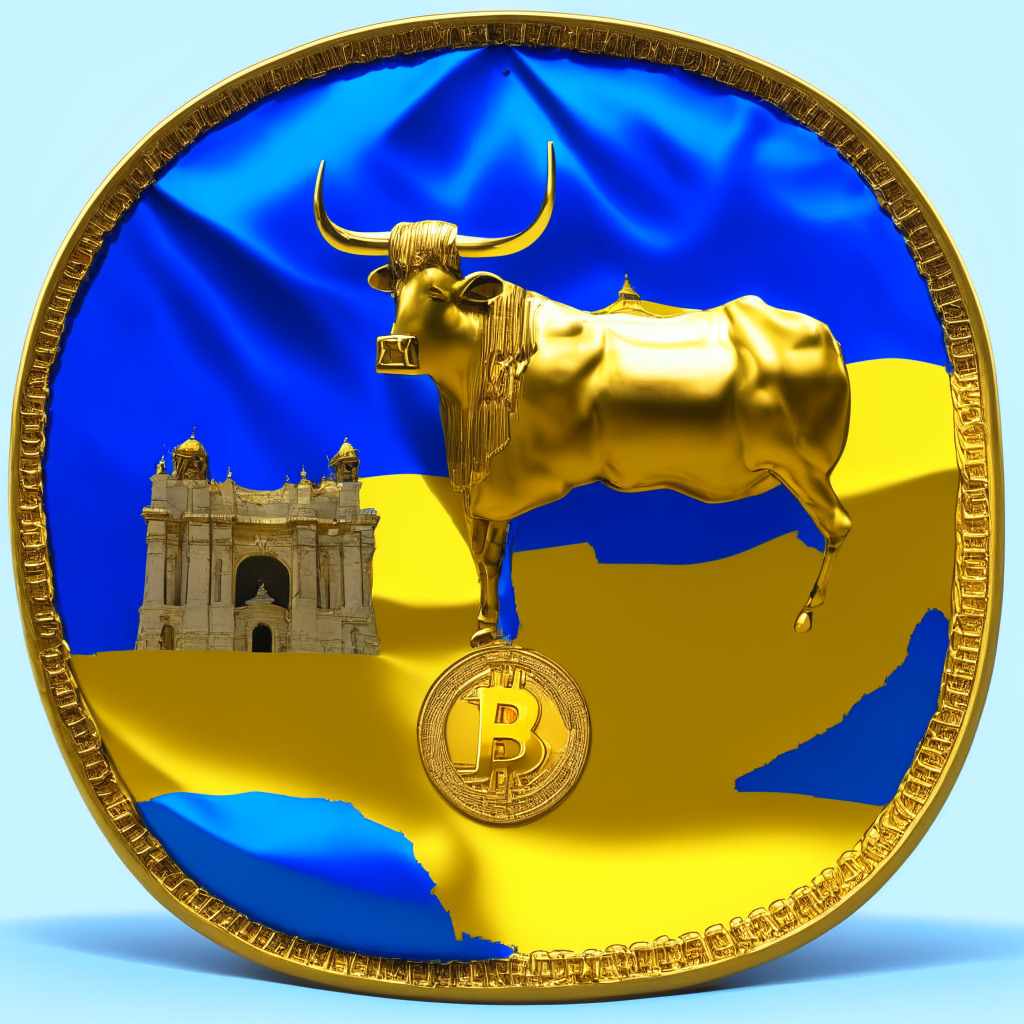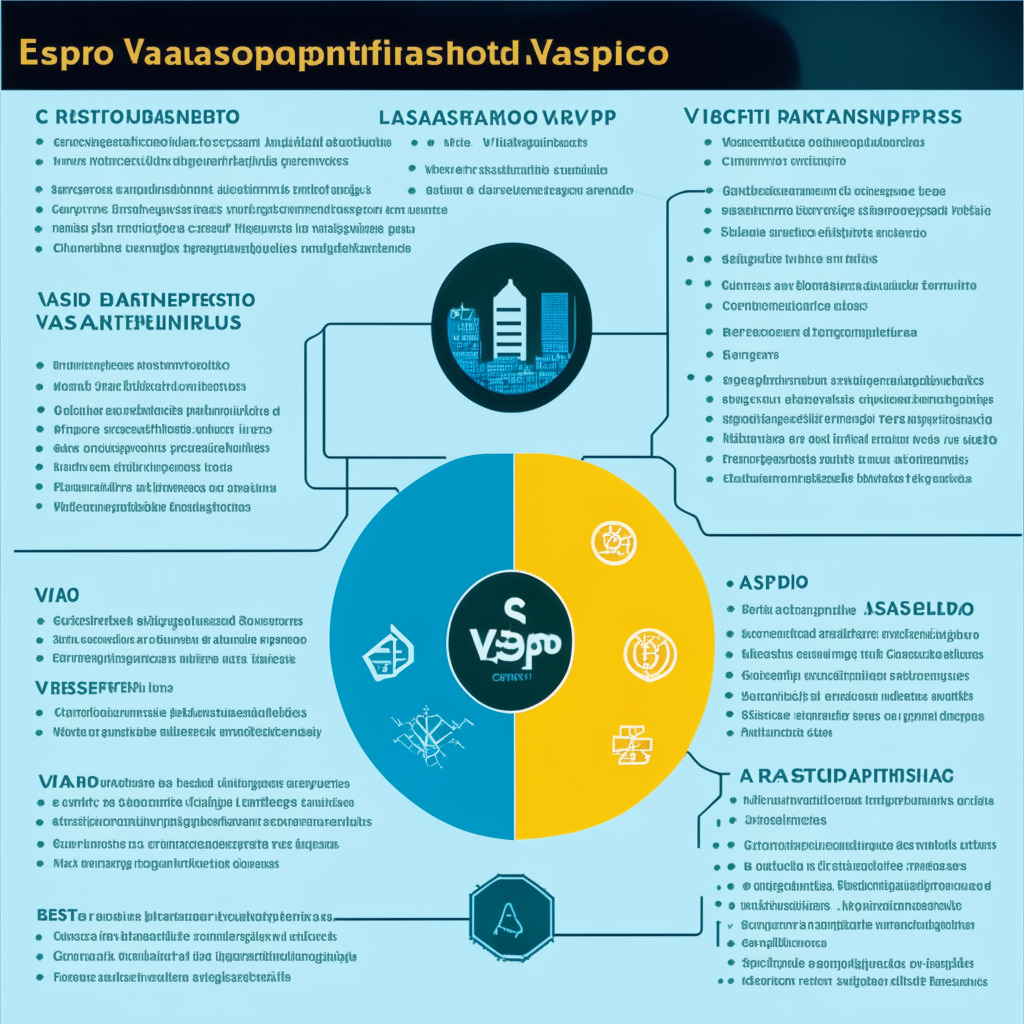Coinbase has obtained an Anti-Money Laundering compliance registration from the Bank of Spain, marking an expansion of its influence in Europe. The cryptocurrency exchange can now offer its products to users in Spain, adhering to local legal frameworks. Also, similar approvals have been received in Italy, Ireland, Netherlands, Singapore, Brazil, and Canada.
Search Results for: Spain
Coinbase Obtain AML Compliance in Spain: Striking Balance between Global Expansion and Regulatory Challenges
Coinbase has secured an Anti-Money Laundering compliance registration from Spain’s central bank, enabling crypto services in the country. As Coinbase expands globally, it faces possible complications from varying regulatory frameworks and is urged to prioritize asset security as skeptical holders consider withdrawing assets.
Spain Takes Lead in AI Regulation: A Progressive Leap or Invitation to Pandora’s Box?
“Spain has established its own agency, the Spanish Agency for the Supervision of Artificial Intelligence (AESIA), aiming to ensure development of AI is inclusive, citizen-centred and sustainable. This move, amid concerns about potential misuses of AI, aligns with EU directives to regulate AI.”
Spain’s A&G Bank Breaks Ground with First Local Crypto Hedge Fund: Promises and Pitfalls
A&G, a Spanish private bank, has launched the country’s first local crypto hedge fund —Criptomonedas, F.I.L. This fund, overseen by Spain’s financial markets regulator, is intended for professional investors and provides a safer, more efficient alternative to spot trading in cryptocurrency.
Spain Leads Europe in Embracing Worldcoin: Exciting Progress or Troubling Privacy Concerns?
“Worldcoin, Sam Altman’s brainchild, has earmarked Spain as its principal operational domain, propelled by growing interest in its privacy-conserving World ID program. The World ID, a personhood proof that emphasizes human essence online, has already onboarded over 150,000 Spaniards and attracts 20,000 more each month. The company aims to foster sustainable digitization while preserving privacy and data security.”
Crypto.com Gains VASP Registration in Spain: Analyzing Benefits and Drawbacks
Crypto.com received a Virtual Asset Service Provider (VASP) registration from the Bank of Spain, enabling it to offer products and services in the country. This milestone follows a compliance review with Anti-Money Laundering Directive (AMLD) and other financial crimes laws required for MiCA-based VASP licenses. Increased regulations anticipate a more transparent, trustworthy, and robust crypto market.
Spain Embraces Crypto.com: Balancing Regulation and Innovation in the EU Crypto Market
Spain registers Crypto.com as a virtual asset service provider under the Bank of Spain, demonstrating its commitment to creating a regulator-friendly environment for cryptocurrency-related ventures, while protecting users and supervising crypto trading activities.
Crypto.Com’s VASP License in Spain: Analyzing Regulatory Inconsistencies and Market Implications
Crypto.Com has obtained a Virtual Asset Service Provider (VASP) license from the Bank of Spain, indicating progress towards a regulated environment for digital assets in Europe. However, inconsistencies in regulatory treatment of exchanges like Binance raise concerns about uneven application of rules and impacts on market stability and adoption.
Balancing Act: Supervising AI Vs. Regulating Cryptocurrencies – Who Gets the Upper Hand?
This article discusses a project launched by UNESCO and the Dutch government to study AI supervision across Europe, aiming to develop guidelines from best practices. It also highlights the contrast of some nations focusing heavily on AI regulations, while cryptocurrency protocols, such as for stablecoin transactions, are being neglected. The importance is stressed of striking a balance between embracing technological advances and ensuring proper regulation for consumer protection.
Kraken’s Pursuit of BCM: A Strategic Move for Crypto Expansion in Holland
“San Francisco-based crypto exchange, Kraken plans to acquire BCM Coin Meester B.V., aiming to expand its footprint in Europe’s advanced economy with high crypto adoption. The merger will allow BCM’s clients access to Kraken’s superior products, unmatched liquidity, exceptional security, and continuous client support.”
Kraken’s Acquisition of Dutch Crypto Exchange: A Strategic Masterstroke or a Risky Gamble?
“The US-based exchange Kraken plans to acquire Dutch cryptocurrency exchange Coin Meester B.V. (BCM), aiming for European expansion and leveraging the EU’s MiCA regulatory framework. This ambitious move, though promising high cryptocurrency adoption, may lead to greater regulatory scrutiny and operational complexities.”
Bold Move or Risky Undertaking? Kraken’s Proposed Venture into Traditional Markets
“Kraken, a leading US-based cryptocurrency exchange, is reportedly planning to venture into traditional stocks and ETFs. This new venture, named Kraken Securities, is waiting for regulatory approvals. Its expansion, however, comes with regulatory scrutiny and privacy infringements, raising questions about harmonizing privacy rights, regulatory requirements and business strategies.”
Coinbase’s Expansion Emphasizes Need for International Crypto Regulations
Coinbase, a leading US-based crypto exchange, has secured approval from the Bermuda Monetary Authority to offer perpetual futures trading services outside the US. This move aims to tap into the growing retail sector interest in cryptocurrency trading, which constitutes three-quarters of the global crypto trading volumes. With a global expansion strategy covering 24 countries, Coinbase also plans to advocate for standardized cryptocurrency regulations at the G20 forum in Brazil.
Kraken Crypto Exchange’s Brave New Leap: Stocks and ETFs By 2024
San Francisco’s crypto exchange Kraken is reportedly considering introducing stock and ETFs on its platform, marking the first crypto exchange to expand past cryptocurrencies. Given the target year of 2024, these additions could flag a new era in trading platforms. Despite challenges, if successful, this could serve as a benchmark for other crypto exchanges to diversify asset classes.
Expanding the Stablecoin Universe: Circle’s EURC Now on Stellar Network
Stablecoin issuer Circle has introduced a new version of its euro-backed stablecoin, EURC, now available on the Stellar network. This innovation offers users the ability to handle business via blockchain networks in local currencies. However, converting blockchain transactions into local currencies remains complicated, highlighting the integration challenges that the blockchain community faces.
Kraken’s Expansion in Europe: Spearheading the Crypto Revolution with Key Regulatory Approvals
Crypto exchange Kraken has secured regulatory approvals in Spain and Ireland, furthering its expansion plans in Europe. With a Virtual Asset Service Provider license and an EU e-money license, Kraken will provide digital asset exchange and custodial wallet services.Investment into regulatory framework positions Europe as a promising arena for crypto growth.
Kraken’s Regulatory Triumph and Tussle: A Tale of Two Crypto Jurisdictions
“Kraken, a major crypto exchange, recently received Electronic Money Institution and Virtual Asset Service Provider registrations in Ireland and Spain, marking progress towards crypto acceptance in Europe. However, it faces controversy with Australian regulators, highlighting the careful balance required in this evolving industry.”
Weekend Crypto Arena: Security Breaches, Executive Reshuffles and Surprising Discoveries
“Over the weekend, OpenSea faced a security breach warning, pointing to the importance of strong protective measures in cryptocurrency trading. Simultaneously, Bitcoin mining machines were discovered in a shocking police raid in Venezuela. Meanwhile, cryptocurrency platform Mixin Network reported a major attack with an estimated loss of $200M, underscoring the high-risk nature of crypto trading. Lastly, Coinbase secured Anti-Money Laundering compliance registration from Spain’s central bank, indicating growth possibilities in Europe.”
Legal Troubles Ripple Through Crypto Space: FTX Controversy and Coinbase’s AML Victory
The article discusses legal disputes in the crypto world, highlighting a lawsuit involving legal team Fenwick & West and cryptocurrency exchange FTX, caught up in allegations of fraudulent activities. On a positive note, it mentions Coinbase’s recent AML compliance registration from the Bank of Spain, indicating global advancements in cryptocurrency regulation.
eToro Secures Crypto Asset Service Provider Registration: A Leap or Looming Overhead?
“eToro, a crypto-friendly brokerage firm, has secured the Crypto Asset Service Provider registration from the Cyprus Securities and Exchange Commission, allowing regulated crypto services to all EU countries. This follows similar approvals in Spain and France, indicating persistent expansion in the regulated crypto services.”
Global Sting Operation Exposes Cryptocurrency Scam: A Milestone in International Cyber Crime Cooperation
A multinational sting operation uncovers a company’s malicious software facilitating the theft of millions from crypto investors. Successful collaboration among international authorities was essential in arresting this operation, underlining the need for global coordination to combat cybercrime. This demonstrates the importance of vigilance and responsiveness in securing the future of cryptocurrency.
Tether’s Ascent: Top Holder of US Treasury Bills and What That Means for Crypto
“Tether, one of the world’s leading buyers of US Treasury bills, has increased its holdings to $72.5 billion. Despite the complexities expansion brings, this represents the growing mainstream acceptance of digital currencies and their incorporation into the traditional financial world.”
Regulatory Tightrope in Crypto: Worldcoin’s Controversial Practices VS Digital Euro’s Promise
“The Worldcoin project, known for its retinal scans to differentiate humans from bots, is under scrutiny for potential violations of regulations, including data privacy and security threats. This situation highlights the necessity for balanced regulatory adherence as the crypto-space evolves, emphasizing consumer protection. On a separate note, the introduction of the digital euro could harmoniously coexist with private payment solutions, addressing cross-border payment issues and increasing accessibility.”
Navigating the Crypto Frontier: The Influx of New Services, Market Moves and Regulatory Challenges
“Asian crypto exchange HashKey Exchange ventures into retail crypto trading services for Hong Kong’s investors, with initial trades open for Bitcoin and Ether. However, traders can invest a maximum of 30% of their net worth into cryptocurrencies, aiming to protect investors from potential losses in volatile crypto market.”
Navigating the High Seas of Crypto: A Sailor’s Bitcoin Journey & Its Reflection on the Crypto World
This striking article explores the connection between the stormy seas of oceanic voyages and the fluctuating journey of Bitcoin. It highlights how unconventional means, like a sailor’s promotion of Bitcoin, alongside the potential challenges of market fluctuations and technological disruptions, shape cryptocurrencies’ future. The story underscores how Bitcoin is becoming more than just a financial concept—it is a lifestyle choice.
Binance in Crosshair: How MiCA Could Shape Crypto Firms’ Future in Europe
The world’s largest crypto exchange, Binance, faces uncertainty amidst allegations of regulatory breaches. The impending EU crypto regulation MiCA requires firms to comply in one member nation but Binance’s strategy of focusing on just a few EU countries may be risky. Robust scrutiny has led to Binance withdrawing from markets like Belgium, Netherlands, Austria, and Germany. How Binance adapts to MiCA requirements and shapes its compliance strategies will impact the future of cryptocurrency in Europe.
Global Tours of Tokenized Real-World Assets: Exploring Blockchain Opportunities and Challenges
This week spotlighted tokenized real-world assets (RWAs), an area projected to reach a $16 trillion market by 2030. Companies like Avalanche are encouraging this trend, while nations like Spain, Colombia, and Hong Kong innovate with equity tokens, decentralized finance, and real estate asset tokenization. Blockchain adoption shows vast potential for growth and inclusivity.
Unveiling EU’s First Tokenized Equities: A Game-changer or a New Challenge?
Securitize has issued the first tokenized equities under the EU’s digital assets framework via the Avalanche smart contract network. These tokens represent equity in Mancipi Partners, a Spanish real estate investment trust. This move signifies a blending between traditional capital markets and crypto, potentially signaling a shift in the financial landscape that could see the tokenized assets market reach $16 trillion by 2030. However, this emerging sector requires careful navigation with thorough regulatory oversight.
Navigating Regulatory Roadblocks: Binance’s Determined Pursuit for Licensing in Germany
Binance, the world’s leading cryptocurrency exchange, revoked its licensing request a month after its application was rejected by Germany’s financial body, BaFin. Despite this, Binance remains committed to securing necessary licensing in Germany, and dealing resiliently with changing global market conditions, including regulation.
Spanish Bank A&G Pioneers Crypto Fund: Rewarding Asset or Risky Bet?
Spanish private bank A&G is launching a pioneering investment fund in crypto, signifying rising crypto adoption in Spain. Ensuring secure crypto-investing via regulated products, the fund’s exposure will range between 50% to 100%, mainly targeting Bitcoin and Ethereum. Caution is advised due to potential substantial losses from crypto’s complex and volatile nature.
Navigating the Taxing Waters: Spanish Crypto Landscape Amidst Soaring Regulations
“Over 70% of Spanish crypto enthusiasts experienced financial downturns in 2022, rising to 91% for those trading crypto derivatives and futures. The new requirement for crypto investors to declare their earnings may have encouraged intentional losses to reduce tax bills.”
EU’s New Data Act: Justifiable Concern for Blockchain Sphere or Unfounded Fear?
The EU’s new Data Act draft has stirred up concerns in the blockchain sector, as it appears to ignore industry-specific issues and could potentially deem most smart contracts invalid. The legislation emphasizes on the “vendors” of these automated programs, causing fear among lobbyists as it could imply endless accountability in decentralized frameworks with no single seller.































